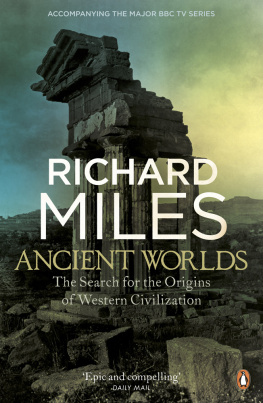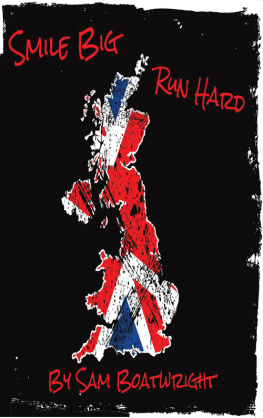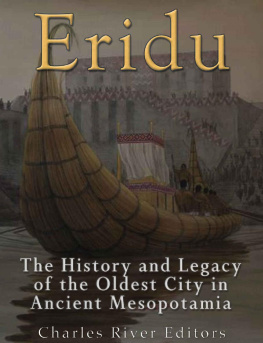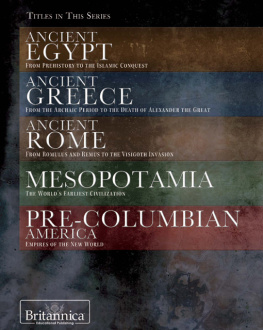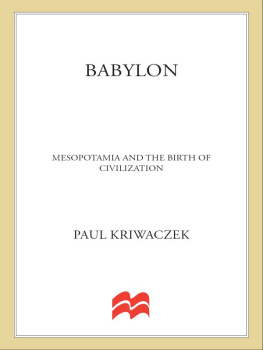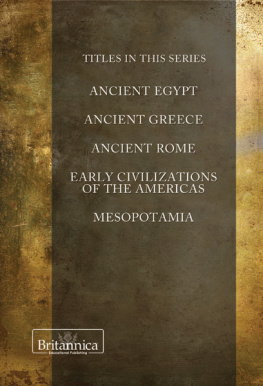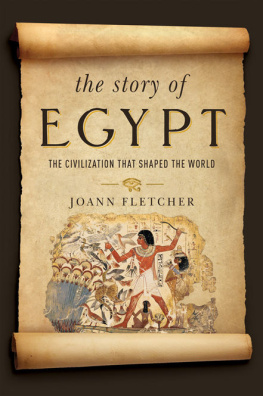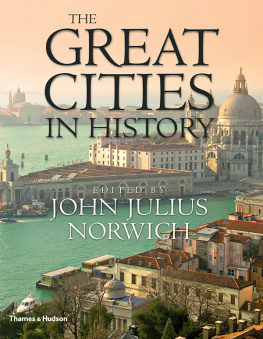
RICHARD MILES
Ancient Worlds
The Search for the Origins of Western Civilization

PENGUIN BOOKS
PENGUIN BOOKS
Published by the Penguin Group
Penguin Books Ltd, 80 Strand, London WC2R 0RL , England
Penguin Group (USA) Inc., 375 Hudson Street, New York, New York 10014, USA
Penguin Group (Canada), 90 Eglinton Avenue East, Suite 700, Toronto, Ontario, Canada M4P 2Y3
(a division of Pearson Penguin Canada Inc.)
Penguin Ireland, 25 St Stephens Green, Dublin 2, Ireland (a division of Penguin Books Ltd)
Penguin Group (Australia), 250 Camberwell Road, Camberwell, Victoria 3124, Australia
(a division of Pearson Australia Group Pty Ltd)
Penguin Books India Pvt Ltd, 11 Community Centre, Panchsheel Park, New Delhi 110 017, India
Penguin Group (NZ), 67 Apollo Drive, Rosedale, Auckland 0632, New Zealand
(a division of Pearson New Zealand Ltd)
Penguin Books (South Africa) (Pty) Ltd, 24 Sturdee Avenue, Rosebank, Johannesburg 2196, South Africa
Penguin Books Ltd, Registered Offices: 80 Strand, London WC2R 0RL , England
www.penguin.com
First published by Allen Lane 2010
Published in Penguin Books 2011
Copyright Richard Miles, 2010
Cover design by Antonio Colao
Cover photograph: The ruins of the Dioscuri
Temple in the Valley of the Temples, Agrigento
(Photograph Alinari Archives/Corbis)
Except in the United States of America, this book is sold subject to the condition that it shall not, by way of trade or otherwise, be lent, re-sold, hired out, or otherwise circulated without the publishers prior consent in any form of binding or cover other than that in which it is published and without a similar condition including this condition being imposed on the subsequent purchaser
ISBN: 978-0-14-196300-6
PENGUIN BOOKS
ANCIENT WORLDS
Richard Miles is the author of Carthage Must Be Destroyed: The Rise and Fall of an Ancient Civilization. He teaches classics at the University of Sydney and was previously a Newton Trust Lecturer in the Faculty of Classics and Fellow and Director of Studies at Trinity Hall, University of Cambridge. He has written widely on Punic, Roman and Vandal North Africa and has directed archaeological excavations in Carthage and Rome. Ancient Worlds was written to accompany his highly acclaimed six-part television series of the same name, first shown on BBC2.
For Maisie, Jessamy and Gabriel, with all my love
Introduction
This is not a history of humankind but of civilization its starting point the first discernible moments when humans began to co-operate, to live and work together in communities much larger and more complex than their immediate kinship groups. The story begins 6,000 years ago, in the deserts of southern Iraq, where a cluster of clans became a city, and that city forged a civilization: the uniquely human phenomenon that has brought with it so much. Its rewards have included art, government, religion and law, and, perhaps most important of all, the idea of a shared humanity.
In telling this story we arrive at the furthest reaches of the historical record, but in the traces that have survived we can still feel the pulse of familiar human experiences. In the remnants of these early civilizations we can recognize the struggle to build the bonds that hold us together: hope and fear, the need to survive, and the urge to create. My career, as a historian and archaeologist of these ancient worlds, has been spent trying to reach back, through the dust of an archaeological dig or the bone-coloured ruins of a once-great city, into this remote past. And sometimes, whether it is in the eyes of an Egyptian death mask, in the words of an anonymous ancient poet, or in the story of a king simply curious to see the sea, you get a glimpse of that recognizable human spirit.
Civilization cannot be separated from the locus that created it, the city. More than 4,000 years ago, a nameless poet listed the attributes of a successful city the place where all the aspirations of a civilization find concrete expression. The list appears in The Curse of Akkad, an ancient Babylonian poem, and it tells the fate of one of the earliest empires in Mesopotamia, in southern Iraq. Its details are so vivid that they could have been written yesterday:
The warehouses were well provisioned,
dwellings in the city were well built.
Its people would eat magnificent food,
its people would drink wonderful drinks.
Those who bathed for holidays rejoiced in the courtyards.
The people would crowd the places of celebration,
acquaintances would dine together
Foreigners would flock to and fro like exotic birds in the sky,
old women with good advice, and old men with good counsel,
young women with dancing spirit, young men with fighting spirit
All foreign lands rested content, and their people were happy.
The reality, of course, is that not everybody can be happy: every city, every civilization has its winners and losers, its haves and have-nots. This is the heavy but necessary price of civilization. But the prize was, and remains, a great one: the happy scenes expressed in this ancient poem make as much sense to us now as they did 4,000 years ago.
On my journey to the sites of these ancient civilizations, I have visited some of the worlds most dangerous and troubled regions. Standing on a hotel rooftop in Baghdad, watching the sky buzz with military helicopters, you cannot help but be struck by the fragility of human civilization. That same ancient poet who described a city in its full glory also drew a sinister portrait of what happened when it all goes wrong:
Packs of dogs roamed the silent streets.
If two men walked there they would be eaten by them,
and if three men walked there they would be eaten by them.
Noses were punched, heads were smashed
Honest people were confused for traitors,
heroes lay dead on top of heroes,
the blood of traitors ran upon the blood of honest men
The old women did not restrain the cry, Alas for my city!
The old men did not restrain the cry, Alas for its people!
Its young women did not restrain from tearing their hair.
Its young men did not restrain from sharpening their knives.
In Iraq today you are confronted by a people who have to pick up the pieces of civilization. It is a punishingly difficult task, but not an impossible one. It is a story that has been played out again and again in this region from the time of the very first cities. When you see the worst of what humans are capable of, you also appreciate the importance of what we can do at our best: our inventiveness and our ability to communicate, and to forge a consensus based on our common humanity.
In the modern West we have lost confidence in the idea of civilization. Embarrassed by its chauvinistic and elitist connotations, we have increasingly taken refuge in less loaded terms such as culture to explain our origins. Culture, with its emphasis firmly on the organic growth of communities, tells a more palatable and soft-focused story than the tales of top-down interventions and hard choices associated with civilization. Cultures are born, civilizations are made man-made. Our discomfort with this idea has made us consign civilization to the museum display case, but in this book the idea of civilization will be rescued from its enforced retirement. Like our anonymous Babylonian poet, who so limpidly described the beauty of civilization and the terror of losing it, here I celebrate civilization and humanitys steadfast appetite to rebuild after the mighty collapse of entire empires.
Next page
